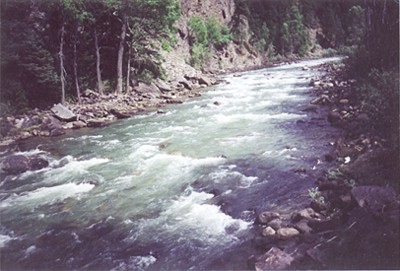All Nonfiction
- Bullying
- Books
- Academic
- Author Interviews
- Celebrity interviews
- College Articles
- College Essays
- Educator of the Year
- Heroes
- Interviews
- Memoir
- Personal Experience
- Sports
- Travel & Culture
All Opinions
- Bullying
- Current Events / Politics
- Discrimination
- Drugs / Alcohol / Smoking
- Entertainment / Celebrities
- Environment
- Love / Relationships
- Movies / Music / TV
- Pop Culture / Trends
- School / College
- Social Issues / Civics
- Spirituality / Religion
- Sports / Hobbies
All Hot Topics
- Bullying
- Community Service
- Environment
- Health
- Letters to the Editor
- Pride & Prejudice
- What Matters
- Back
Summer Guide
- Program Links
- Program Reviews
- Back
College Guide
- College Links
- College Reviews
- College Essays
- College Articles
- Back
Environmental Effects of Consumerism
We cannot look out a window without seeing pure abundance all around us, nor can we look in our homes without abundance meeting our eyes. We have everything we need and more. Then upon venturing out a little from home, one’s met with the towering giant of consumerism. It’s shadow falls over nearly everything. This giant feeds off of our societal need to possess pure unneeded and unfulfilling abundance. And in doing so, the abundance that truly belongs in the world is being slashed away. The natural world is all people relied upon and thrived on for centuries, and now we’re turning our heads and using it with ungiven rights.
It’s not easy for people to suppress this need to be part of the “consumer class,” as to do so would be going against most of society. 1.7 billion people worldwide are part of the consumer class: people who have diets of highly processed foods, a strong desire for larger homes and cars, and an overall lifestyle that’s devoted to accumulation of unessential items (National Geographic). While there are plenty of horribly negative effects that all that brings onto ourselves emotionally and physically, there’s a another problem that lies behind the shiny labels.
The floors glisten with the overhead fluorescent lights; the carefully arranged displays beckon you. Fur lined boats and coats are at such a reasonable price you walk out of the store with them. It’s special to own because it’s a connection to the wild free soul of the animal, but that’s simply not the case. With 85% of the fur industry’s fur coming from fur factory farms, the fur you own came from a tortured, insane, sick animal that lived out its life in cage unable to walk. Ammonia from feces and urine from countless animals in one big barn burn their eyes and lungs. They are often even skinned alive, left to die as pure flesh, and there are no laws preventing or regulating this inhumane treatment (“Fur Farms” Peta).
With production and shipment of products there’s extreme impacts on our planet's health, which is also our own health. Atmospheric pollution, sound pollution, wildlife collisions, and oil spills are all environmental effects of consumerism just within the range of product shipping alone. The ecosystem is carefully balanced and works just so that everything stays in that balance, and we’re disrupting it with this.
Even our food has huge factors in environmental poisoning. One is the waste that comes with it, and secondly is the way it’s grown and made. The plastic that highly processed foods come in is, like all plastic, made from oil, natural gas, and coal. That gets thrown out, either into landfills or wherever one was standing at the time. The production of plastic adds to pollution, while the waste left behind by humans harms and kills wildlife, pollutes water, and ruins the land’s natural beauty. The food itself is very harmful to animals, even more so than it is to us. This is because of the way it’s grown, or for some of these foods the more correct term would be made. Genetic engineering of food has removed valuable nutrients from food so it can be grown easier and in larger quantities. Like the animals in fur factories, profit is put before wellbeing; only in this case we’re the animals. Pure chemicals are used to preserve and add flavor to processed foods. In growing and producing this “food,” land is cleared, chemicals are used which ruin the soil and can soak down to the groundwater, and our health along with animals health is compromised. Because we are part of the environment just as we are part of the consumeristic society hurting it.
The giant of consumerism's shadow is just that for many, a shadow. It’s the living colorful thing that they see. Yet the shadow is what it’s done, what it does, and what you’re unintentionally supporting. There are huge environmental effects of consumerism, and the consumer class isn’t acting on them.
Works Cited
Mayell, Hillary. "As Consumerism Spreads, Earth Suffers, Study Says."National Geographic. National Geographic Society, 12 Jan. 2004. Web. 16 Dec. 2014.
"Fur Farms." PETA. PETA, n.d. Web. 17 Dec. 2014.
"China Fur Trade Exposed in 60 Seconds." PETA China Fur Trade Exposed in 60 Seconds Comments. N.p., n.d. Web. 17 Dec. 2014.

Similar Articles
JOIN THE DISCUSSION
This article has 0 comments.
